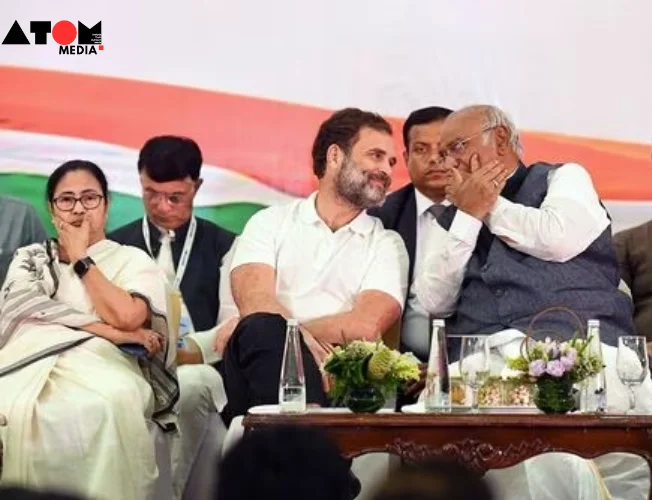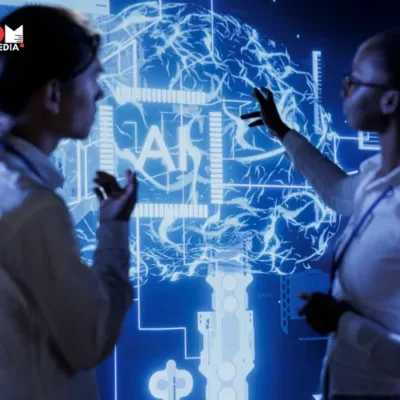An important conference has been arranged for June 1 in Delhi by the opposition coalition led by the Congress, known as the Indian National Developmental Inclusive Alliance (INDIA). The seventh and final round of voting in the current Lok Sabha elections is scheduled to take place on the same day as this meeting. Just a few days before the election results are announced on June 4, the coalition leaders are reportedly planning to meet together to discuss and plan their next move.
Importance of the June 1 Meeting
The June 1 conference is crucial for the INDIA alliance because it represents the end of a protracted struggle to unseat the National Democratic Alliance (NDA), which is led by the Bharatiya Janata Party (BJP) and is now in power. After the election, the leaders should evaluate how their campaign performed, talk about possible outcomes, and decide what to do next. This strategic meeting is important because it will determine how the alliance responds and behaves after the election.
Key Participants and Agenda
Aam Aadmi Party (AAP) national convenor Arvind Kejriwal, the chief minister of Delhi, is one of the notable leaders invited to the gathering. Kejriwal’s presence at the gathering is especially significant because he is obligated to surrender on June 2 after the Supreme Court granted him temporary bail in the Delhi excise policy case. The AAP and the Congress have agreements in place for seat sharing in a number of states, including Delhi, Goa, Gujarat, and Haryana. Nonetheless, the two parties are running independently in Punjab, where the Congress is the main opposition party and the AAP is the ruling party.
The meeting’s agenda will center on assessing the coalition’s performance during the course of the election, examining voter turnout, and getting ready to announce the results. In addition, the leaders will talk about possible approaches to creating a government in the event that the coalition wins a clear mandate. The alliance has the chance to show that they are united and prepared to rule during this meeting, reaffirming their commitment to offering a substitute for the NDA.
Formation and Evolution of the INDIA Bloc
The main goal of the July formation of the Indian National Developmental Inclusive Alliance (INDIA) was to oppose the BJP-led NDA in the 2024 Lok Sabha elections. The alliance, which has 28 member parties, wants to oppose the NDA, which is running for a third term in government in a row, by putting up a unified face. Since Prime Minister Narendra Modi wants to serve a hattrick of terms, this election is crucial to the political landscape in India.
The opposition parties’ shared goal to challenge the BJP’s hegemony and tackle what they see as urgent national issues—such as social justice, economic inequality, and democratic governance—led to the establishment of the INDIA alliance. The coalition has spent the last year trying to strengthen its position, sort out seat-sharing agreements, and provide voters a coherent policy program.
Election Timeline and Phases
In order to accommodate India’s large and varied population, the general elections were held in parts beginning on April 19. Voting continued with a second round on April 26 and further stages on May 7, 13, 20, and 25. June 1st is the day of the seventh and final phase, which will cover important seats like Punjab, where there is a very fierce election struggle.
The polls are being held in phases, which guarantees that voters nationwide will have plenty of opportunities to cast ballots and also enables election officials to efficiently handle logistics and security. Voter turnout has varied each phase, with the last phase predicted to be critical in determining the election’s ultimate result.
Public Support and Comparisons to Historical Elections
The 1977 Janata Party wave, which witnessed the historic overthrow of the then-ruling Congress party, has been compared to the INDIA bloc. Digvijaya Singh, a senior Congress official, has compared the public’s support for the INDIA bloc to that crucial period in Indian political history, implying that the alliance has a sizable grassroots following. This analogy highlights the bloc’s capacity to effect significant political change.
Political analysts and specialists have been keeping a close eye on how the public has reacted to the INDIA bloc’s campaign, observing that many voters have found resonance in the coalition’s emphasis on inclusion and developmental problems. The bloc’s capacity to garner support from a wide range of people and regions will be crucial to its success.
Strategic Importance of Seat-Sharing Agreements
Agreements for seat sharing have been a crucial part of the INDIA bloc’s approach. By avoiding vote-splitting in important districts, these agreements have increased the coalition’s prospects of obtaining seats. The level of collaboration between the AAP and Congress has been especially noteworthy in states like Delhi, Goa, Gujarat, and Haryana. The coalition’s complicated dynamics and the necessity to take into account local political realities are reflected in Punjab’s choice to hold separate contests.
Once the results are known, a detailed examination of these seat-sharing agreements will take place. If seat-sharing and coordination work well, this might be a template for future electoral coalitions; if not, the coalition’s strategy may need to be revised.
Election Day Logistics and Security
The Indian Election Commission has made great efforts to provide a seamless and open electoral process. To ensure accuracy and transparency in vote counting, this entails deploying enough security officers, establishing secure counting centers, and leveraging technology like Voter Verifiable Paper Audit Trails (VVPATs) and Electronic Voting Machines (EVMs).
Organizing elections in a nation as big and varied as India presents enormous logistical obstacles. Maintaining public confidence in the democratic system depends heavily on the Election Commission’s efforts to ensure the integrity of the election process.
Media Coverage and Public Anticipation
The national and international media will cover the counting day and the results announcement in great detail. Throughout the day, major news sources, such as the Hindustan Times, will offer real-time information, analysis, and professional viewpoints. Additionally, online channels will be essential for sharing information and informing the public in real time.
There is a tangible sense of excitement among voters, political pundits, and party staff as they await the results. The outcome will not only dictate the makeup of the incoming administration but also convey the public’s assessment on the state of politics today and the various parties’ campaigns.
Future Implications for the INDIA Bloc
The outcome of the Lok Sabha elections in 2024 will have a big impact on how the INDIA bloc develops. If the alliance does well, it may become a powerful force in Indian politics, able to counter the BJP’s hegemony and influence national policy. On the other hand, a subpar showing might force a review of the coalition’s goals and tactics.
The leaders of the INDIA group will need to show their cohesion and willingness to face the difficulties ahead during their meeting on June 1.
Read more: Marketing News, Advertising News, PR and Finance News, Digital News





